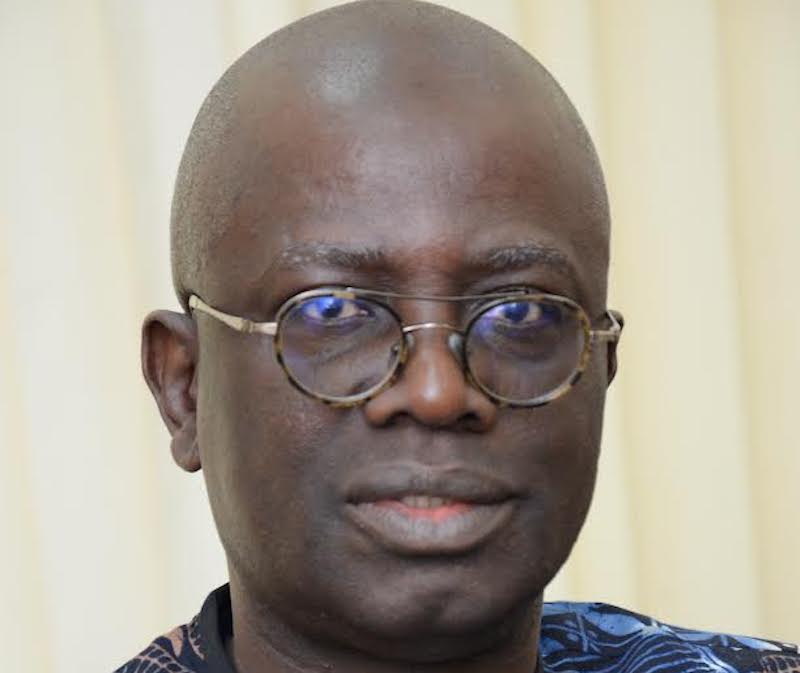The past two weeks have been tough for me health wise, but I appreciate all those who have either called or sent messages. I also thank God for His mercies. I am getting better. I couldn’t write this column last week and I had neither the motivation nor the presence of mind to do so this week either. But I noticed last night that the 2025 ‘World Suicide Prevention Day’ (10th September every year) passed us by in Nigeria without much awareness about an affliction that takes the lives of several of our citizens almost on daily basis. Meanwhile, Nigeria remains one of the few countries in the world where attempted suicide is still treated as a criminal offence under both Section 327 of the Criminal Code Act and Section 231 of the Penal Code Act. As a reminder of the challenge at hand, I am republishing an abridged version of a column I wrote on the issue six years ago.On that occasion, Ireminded readers of the immortal words of David O. McKay: “The most important of life’s battles is the one we fight daily in the silent chambers of the soul.”
===================================================================================================================================
Following the death in March 2017 of a medical doctor who jumped headlong into the lagoon off Third Mainland Bridge in Lagos, I argued on this page that because some wounds can easily be covered up, we do not always know what people around us are going through or what action they might take when pushed to the edge. I used a two-minute Youtube clip titled ‘Silent Battles’ to illustrate my point in a piece titled ‘The Silent Battles of Life’. Recent developments in our country indicate that many of our citizens do indeed need help without knowing where to turn. That makes them susceptible to depression, a state that has been described as being surrounded by a thousand people yet feeling completely alone.
A 25-year-old graduate of Madonna University returned home from the National Youth Service Corps (NYSC) scheme to stab himself to death, following signs of depression which his parents noticed and actually did all they could to help. A night guard at the Ekiti state scholarship board hanged himself with clothing material tied to the railing of a building at the ministry of education, after telling his sister-in-law that he was tired of life. A middle-aged man walked into the premises of Wema Bank in the Sango area of Ibadan, stripped naked, climbed the network mast and jumped to his death. A 400-level student of the Department of English and Literary Studies, University of Nigeria, Nsukka, (UNN) posted a revealing suicide note on his Facebook wall and then drank two bottles of ‘Sniper’ to end it all. Faced with the prospect of being withdrawn from the Niger Delta University, a medical student plunged into a river in Ammasoma, Bayelsa State.
From failing examinations to being dumped by a lover to desperation resulting from the biting economic situation or health complications and peer pressure, far too many Nigerians are reaching their breaking point and taking their own lives through various means. And if there is anything that recent tragedies have taught, it is that there are many otherwise normal people who nurse a feeling of emptiness and despair that could in turn trigger what is almost becoming an epidemic in our country. More worrisome is that there is now a body of research that suicide can indeed be contagious with the reported death of one person contributing to such decision by others. In her thesis on this issue, Dr Madelyn Gould puts the blame partly on the media. Even in our country, you see in some publications distasteful photographs of victims dangling on the rope. “Media coverage of suicides has been shown to significantly increase the rate of suicide, and the magnitude of the increase is related to the amount, duration, and prominence of coverage”, said Gould.
Suicide of course is not peculiar to Nigeria. It is a global challenge. In the last 45 years, according to the World Health Organisation (WHO), suicide rates have increased by 60 percent globally and now a leading cause of death among young people–the group at highest risk in a third of all countries. In the US, according to the Centre for Disease Control and Prevention, suicide is the third leading cause of death among people between the age of 15 and 24 while, going by WHO estimates, nearly 30 percent of all suicides worldwide occur in India and China.
In South Korea, Japan and the Asia-Pacific region, suicide is also the leading cause of death among young people. In fact, a recent government report says that more Japanese children and teenagers killed themselves between 2016 and 2017 than in any year since 1986. “We’d love to eliminate such tragedies altogether, but the reality is several hundred children are taking their lives (each year),” an education ministry official reportedly said. “It’s important to teach children how to get help as soon as possible … because it becomes harder and harder to find help once they’re already suffering. The light at the end of the tunnel gets darker and darker until they begin to start seeing the light at the end of the tunnel as death.”
The president of the association of psychiatrists of Nigeria, Dr Taiwo Sheikh, recently put the number of psychiatrists in Nigeria at about 250. “We are training psychiatrists, both at the West African College of Physicians and the National Postgraduate Medical College, but three out of every five psychiatrists we produce leave the country for greener pastures. One major thing that is eating the field of mental health is brain drain”, he told PUNCH newspaper which did a detailed report on suicide cases in Nigeria. The implication is that even for those who want to seek help, there may be nowhere to go in a nation that has ‘surplus doctors’. But it is also reassuring that many Nigerians are now speaking out on how those going through any form of stress, personal losses, heartbreak, frustration, grief or experiencing depression can be helped. We need an urgent national conversation on mental ill-health which might be more prevalent than we imagine because the system makes it difficult for people to even acknowledge they have such challenges to avoid stigmatization.
The most famous psychiatric hospital in the country is in Aro, Abeokuta, Ogun State. Yet, ‘Aro’ or ‘Aromental’ has for decades been the name with which we tag anybody who may have issues that ordinarily deserve a duty of care. Also, because there is no support system, many cannot optimize their potentials. So, beyond counting the body-bags of suicide victims, we need to de-stigmatize the challenge of mental ill-health.
In October 2015, the ‘New York Times’ published a lengthy feature story titled, ‘The Chains of Mental Illness in West Africa’ which speaks to how countries within the sub-region, including Nigeria, maltreat people with mental ill-health. We see it on the streets of major cities in Nigeria where people who ordinarily should be helped are paraded in chains. “Every society struggles to care for people with mental illness. In parts of West Africa, where psychiatry is virtually unknown, the chain is often a last resort for desperate families who cannot control a loved one in the grip of psychosis. Religious retreats, known as prayer camps, set up makeshift psychiatric wards, usually with prayer as the only intervention,” wrote New York Times in the report which also revealed that “at last count, Liberia had just one practicing psychiatrist. Niger had three, Togo four and Benin seven. Sierra Leone had none.” The report also stated: “Surveys, like one by psychiatrists at the University of Ibadan in Nigeria, put the prevalence of schizophrenia, characterized by hallucinations and delusions, at 0.5 to 2.5 percent, roughly the same as the global prevalence. That is at least a million people in countries where chaining is common, like Togo, Ghana and Nigeria.”
In contrast to how we deal with mental ill-health, especially in Nigeria, the British Broadcasting Corporation (BBC) last Sunday aired a special programme titled, ‘A Royal Team Talk: Tackling Mental Health’ in which the Duke of Cambridge, Prince Williams had a roundtable discussion on a football field with Thierry Henry, Gareth Southgate, Danny Rose, Jermaine Jenas and Peter Crouch on depression and suicide. “Men are the hardest-to-reach audience on the subject of mental health. Suicide is the biggest killer of young men under the age of 45”, said Prince Williams who also shared his own harrowing experience following the death of his mother, Princess Diana, which he described as a “pain like no other pain”.
If there is any lesson from recent tragedies, it is that we should be sensitive in how we respond to the plights of others, even in the social media. Although the concern of Dr Robert Brandt was more about professional colleagues in the field of medicine in his piece, “Silent Battles that cannot be Won Alone”, his admonition is nonetheless useful for us all: “I know from multiple friends who have been in that dark place that healing often starts with finding a person who will listen to them. Spouting advice and saying ‘just get over it’ cures nothing. Be kind and listen, truly listen. It can be the start of the healing process.”
The Mentally Aware Nigeria Initiative (MANI) and other similar non-profit organisations can be found online, raising awareness on mental health issues in our country and how people can be helped. But sometimes the choice as to whether to carry on or give up is ours to make. In the difficult times in which we live, it is easy to yield to some dark inner pressure when confronted with problems for which we have no immediate solution. In such moments, we must always remember that life, as one writer aptly captured it, is not about waiting for the storm to pass, “it’s about learning how to dance in the rain.”
Stay ahead with the latest updates!
Join The Podium Media on WhatsApp for real-time news alerts, breaking stories, and exclusive content delivered straight to your phone. Don’t miss a headline — subscribe now!
Chat with Us on WhatsApp




